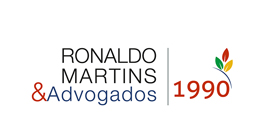There should be an Attorney General’s Office competent to defend the diffuse rights of taxpayers, so that they do not bear unconstitutional charges, through the prices of services and goods.
The Federal Supreme Court (STF), in the judgment of RE 7141391 – theme 745 – in the system of general repercussion, considered the institution of increased ICMS rates for electricity generation and telecommunications services unconstitutional.
In analyzing the issue, the Full Court recognized the unconstitutionality of a tax rule of the State of Santa Catarina, which set an ICMS rate of 25% (twenty-five percent), against a general rate of 17% (seventeen percent) for the sectors mentioned above.
The Justices understood that the Original Constituent Power did not allow higher rates to be established for electric power and telecommunications services operations than for operations in general, due to the essential nature of the goods and services.
As the merit of the appeal was heard under the general repercussion system – which imposes mandatory compliance by judges and courts, pursuant to article 9272 of the Code of Civil Procedure – the decision, in addition to binding the Judiciary, also indirectly demonstrated the clear unconstitutionality of several state rules that also require an increased ICMS rate for the same taxable events that are the object of the extraordinary appeal – electricity and telecommunications services.
It is necessary to emphasize that the decision adopted through the general repercussion system is not binding on the Legislative Branch, by virtue of the principle of separation of powers, which is why it is necessary to file specific lawsuits – via diffuse control or abstract control of constitutionality – in order to remove numerous state rules that are incompatible with the Federal Constitution from the legal system, in accordance with the judgment.
Furthermore, for reasons of exceptional social interest (significant impact on state tax revenues), pursuant to article 927, paragraph 2 of CPC3, the STF “adapted” the effects of the decision rendered in RE 714139 so that it would only be effective the as of fiscal year 2024, except for the lawsuits already filed until the date when the judgment on the merits began (2/5/21).
This modulation of effects has generated the following consequences:
- taxpayers who exercised their right of action to question this unconstitutionality by 2/5/21 are entitled to refund the amounts overpaid in the 05 (five) years before the filing of the action;
- several state rules will continue to produce effects normally, applying the increased ICMS rate on electricity and communication services at least until the end of the fiscal year 2023;
Thus, the taxpayer that fits into the situations above, i.e., is required to pay ICMS at a higher rate on electricity and telecommunications, may seek a court order, including an interlocutory relief, so that it is not required to pay the tax above the constitutionally allowed rate, under penalty of direct violation of the principle of selectivity and constitutional supremacy.
The principle of selectivity, set forth in article 155, paragraph 2, III, of the Federal Constitution of 1988, establishes that lower rates must be applied to products and services considered essential to taxpayers. In other words, the Federal Supreme Court expressly recognized that electricity and telecommunications services are critical to a decent life, when judging RE 714139, as can be seen in the delimitation of the thesis established:
Theme 745: Since the state legislator has adopted the selectivity technique with regard to the Tax on Circulation of Goods and Services (ICMS), rates on electricity and telecommunication service transactions are higher than those on transactions in general, considering the essential nature of the goods and services.
There is no doubt that electric power and telecommunications services play a fundamental role in obtaining and maintaining a decent life, even more so in the post-covid-19 world, where various activities have started to be developed in a virtual environment, and even more so the various essential services that depend directly on these inputs.
On the other hand, it should not be ignored that a large part – if not the majority – of Brazilian entrepreneurs are micro and small companies, which sometimes do not have the capacity to contribute in proportion to the demand for consumption of these inputs, in order to ensure the survival of the business activity, which rates are generated based on increased ICMS rates, the unconstitutionality of which has already been recognized.
This was the reason that motivated the Attorney General of the Republic to file 254 (twenty-five) direct actions for declaration of unconstitutionality (ADI) with a preliminary injunction request to suspend the effectiveness of the state laws that are demanding an increased rate of ICMS in the same hypotheses of theme 745, namely: ADIs 7108 (PE), 7109 (MS), 7110 (PR), 7111 (PA), 7112 (SP), 7113 (TO), 7114 (PB), 7115 (MA), 7116 (MG), 7117 (SC), 7118 (RR), 7119 (RO), 7120 (SE), 7121 (RN), 7122 (GO), 7123 (DF), 7124 (CE), 7125 (ES), 7126 (AP), 7127 (PI), 7128 (BA), 7129 (AM), 7130 (AL), 7131 (AC), and 7132 (RS).
In relation to the modulation of the effects of the decision, so that it only takes effect as of the 2024 fiscal year, it can be seen that the STF has again chosen to embrace the so-called “useful unconstitutionality technique.” This technique implies recognizing that unconstitutional rules are produced and are in force for long periods in order to meet the purposes of the political body that issued them, until they are declared unconstitutional by the STF, which, while recognizing the defect that tarnishes them since their issue, modulates the effects of the decision so that it protects legal relationships that have already been established, mitigating “the unconstitutionality.”
Under a political aspect, this production of unconstitutional rules ends up being useful and favorable to the members of the federation (Union, States, Distrito Federal, and Municipalities) and burdensome to taxpayers, who directly endure unconstitutional revenues and, many times, are not even able to obtain the refund/compensation of what has already been unduly paid.
This legal technique is very well explained and criticized by former STF Justice Marco Aurélio de Melo:
“…I have been systematically voting against the modulation of the effects of decisions declaring the unconstitutionality of Laws. Adopting this measure immoderately implies making the Federal Constitution itself flexible, not a rigid document to be observed by all. Given the principle of supremacy of the Major Law, unconstitutionality is a congenital defect, the unconstitutional Law is stillborn. The Supreme Court’s continuous practice of deferring in time the effectiveness of its decisions stimulates the unacceptable figure of useful unconstitutionality: governors and legislators are not afraid to issue unconstitutional laws, because they trust in the future modulation of effects…5”
Therefore, from the moment the STF recognized the unconstitutionality of the rule of the State of Santa Catarina (RE 714,139), and consequently the other state rules that fit into the same legal situation as the rule declared unconstitutional, the maintenance of an increased ICMS rate for electric power and telecommunications services is no longer justified.
Notwithstanding, a time perspective (modulation of effects) cannot be more important than the very soundness of the fundamental rule that underlies the democratic rule of law, since the unconstitutional state taxes will continue to infringe the current legal system until the year 2024 and, consequently, the taxpayers’ ability to pay, since they will be the only ones harmed by the mitigation of the effects of the decision when they suffer the unconstitutional increase in the tax rate.
In this scenario, in order for the taxpayer not to remain bound to an undue collection, all that is left for him to do is either to wait for the expiration of the term for mitigation of the effects of the decision, that is, the year 2024, await the result of the actions filed by the PGR, or to anticipate and file a lawsuit seeking an emergency interlocutory relief in the sense of recognizing the inexistence of a legal relationship with the state tax authorities, in order to collect the ICMS on the energy and telecommunications sectors based on the general rate established constitutionally.
For these reasons, we have always maintained that there should be a Federal Attorney General’s Office competent to defend the diffuse rights of taxpayers, so that they do not bear unconstitutional charges, through the prices of services and goods, made available to the population in general.
————————————–
1 BRAZIL. Federal Supreme Court. Extraordinary Appeal 714139/SC. Justice Marco Aurélio and Justice Dias Toffoli, decision published on 03/15/2022
2 BRAZIL. Code of Civil Procedure. Law 13105 of March 16, 2015
3 Idem.
4 BRASIL. http://www.mpf.mp.br/pgr/noticias-pgr/pgr-apresenta-25-acoes-diretas-de inconstitucionalidade-contra-aumento-de-icms-sobre-energia-e-comunicacoes – access on 04/18/22
5 BRAZIL. Federal Supreme Court. Amendment of Statement in Extraordinary Appeal No. 643.247/SP. Justice Marco Aurélio, judgment published on 06/28/2019



